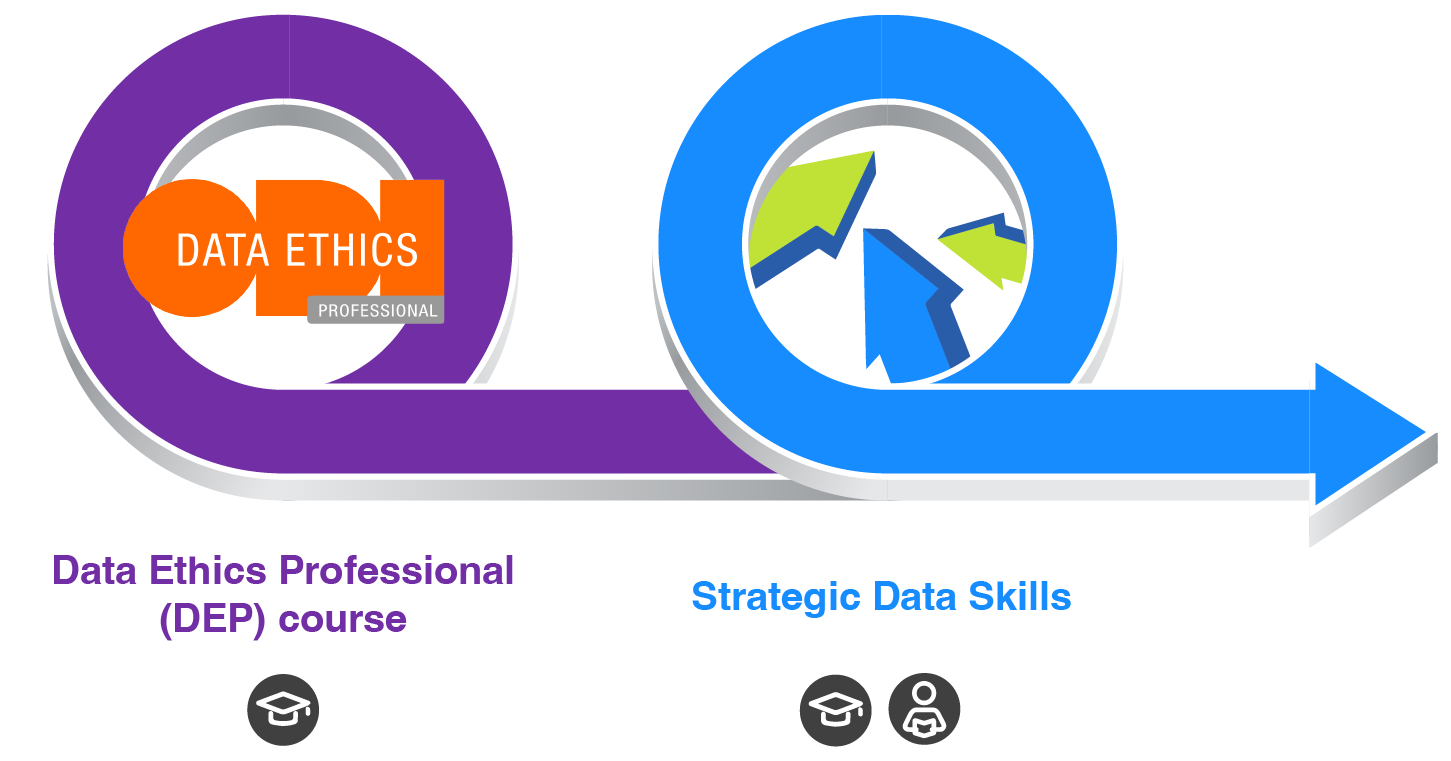Payment methods:
Payment is made via Eventbrite and can be made through PayPal or via Invoice.
A comprehensive course designed for forward-thinking individuals passionate about evaluating data practices and AI tools with the potential to adversely impact people and society
Data ethics and responsible AI is not just a technical issue – it’s a pressing concern that has implications for all aspects of organisations, from the C-suite to the comms team, from the legal department to HR and finance. Many organisations in a range of sectors grapple with these issues, including the public sector, health, finance, technology, consultancy and more.
This comprehensive course is designed for forward-thinking individuals passionate about evaluating data practices and AI tools with the potential to adversely impact people and society; we will give you the tools to build trust and to be transparent and accountable in the data-driven world of AI, ensuring that your organisation is positioned to reap the benefits of data and AI while minimising risk.
This course is best suited to professionals who manage or use data or AI tools to inform organisational strategy as well as day to day decision making. Alumni from previous cohorts come from a range of roles, including data protection officers, software engineers, programme managers, data analysts and more.
As a sought-after data ethics professional, you will be able to unlock the potential of responsible data creation, sharing and use, and you will be well positioned to take the lead on ethical and responsible implementation of data projects and AI tools within your organisation.
Weekly topics include:
Week 1: Introduction to data ethics and responsible AI
Week 2: Foundations of ethical decision making
Week 3: Ethics and personal data
Week 4: Ethics in data collection and data sharing
Week 5: Bias and fairness in the data lifecycle
Week 6: Bias and fairness in machine learning and AI
Week 7: Transparency and explainability
Week 8: Operationalising data ethics and responsible AI
Successful participants will be:
23rd March 2026
Course schedule
From £1,699 + VAT
An ODI Data Ethics Professional is recognised by the ODI as competent in the area of data ethics, and the practical steps required to help organisations minimise potential harms that come from data collection, use, and sharing.
As a certified professional you will:This is a blended course. Dependent on the chosen pathway, your learning experience includes:
The assessment framework forms the fundamental basis for how we assess whether people have passed the course, and focuses on three areas:
To become a Data Ethics Professional, a minimum of a pass mark must be achieved in all three areas.
We offer a flexible assessment format for this course, allowing participants to choose a case study relevant to their sector and job role. Assessments typically take the form of a 2500-word report, but other formats are also acceptable (for example, a recording of a talk at a professional conference), empowering participants to demonstrate their understanding of ethical data practices in a manner that suits their expertise and professional needs.
There are two components to the assessment which form part of the programme.
1 – Written case study
The written case study is the main piece of assessment and requires participants to demonstrate their knowledge and skills as a data ethics professional. The case study must be a piece of original research, written by the participant. Case studies should be no longer than 2500 words (excluding references and appendices).
Case studies can be written in two ways:
Time requirement: 30 hours
2 – Case study discussion
In order to help develop case studies, participants are required to engage in discussions throughout the course related to the topics covered, as well as their chosen case study.
Weekly engagement: 30~ mins
It is expected that the assessed case study will require approximately 30 hours of engagement.
This course is best suited to professionals who manage or use data or AI tools to inform organisational strategy as well as day to day decision making. Alumni from previous cohorts come from a range of roles, including data protection officers, software engineers, programme managers, data analysts and more.
Up to 24 participants.
Just an internet-enabled laptop or PC, that can access Zoom calls for the teacher lead aspects of the course. That’s all.
Founded in 2012 by Sir Tim Berners-Lee and Sir Nigel Shadbolt, the ODI offers courses that are friendly, supportive and fun. No question is a silly question in our classrooms, and our expert teachers will arm you with all the practical skills you need for applying what you’ve learnt to the real world. The majority of the course content is made available to reuse under an open licence.
This course was created by and is © The Open Data Institute.


"The course was mind-opening. Before taking it, data ethics felt quite an abstract field, difficult to pin down through practical observations and recommendations. The ODI was really able to bring the topic to life and show how to work with data ethics in practice through so many examples and group exercises. The course was also a great opportunity to work in a cross-functional environment, where each person brought different ideas from their own background. Highly recommended.”
Cristina U
"The assignments were the highlight of the course. They were well designed – it’s good to use real live data from a different sphere than I’m used to working in. And I really liked how they built on the previous assignment learnings.”
Digital Analyst, Boots
"I would recommend the ODI's Data Ethics Course to anyone genuinely wanting to broaden their perspectives and understand more about ethics as a concept. It is a challenging course but the tutors, the content and the other students make it interesting. It is not an easy pass, or a quick win certificate, you need to invest a decent amount of time in both the sessions and in your own time for study and assignment preparation. I will definitely be taking my new knowledge and learnings back into my role.”
Sarah Kennedy, Senior Case Officer (Sandbox), ICO
To ensure inclusivity, we offer discounted pricing for customers from lower or middle-income countries.
Please contact us for further information.
If you represent a business interested in purchasing four or more course spaces, please reach out to us for personalised discounted rates.

Specifically designed for professionals and practitioners who leverage data to inform business strategy and daily decision-making processes.
Encompasses activities such as data organisation, analysis using spreadsheet software or BI tools, and effective interpretation of data outputs for stakeholder communication.
Specifically designed for professionals and practitioners who leverage data to inform business strategy and daily decision-making processes.
Encompasses activities such as data organisation, analysis using spreadsheet software or BI tools, and effective interpretation of data outputs for stakeholder communication.

This two-hour online course gives an introduction to the concept of data ethics, how ethics is addressed in other domains, and how data ethics can be applied...

Learn how to discover, use and describe the benefits of open data, and how it impacts your organisation on this live, instructor-led, online and interactive course...

This course will equip you with the theoretical knowledge, practical skills and technical know-how to make better decisions using data...